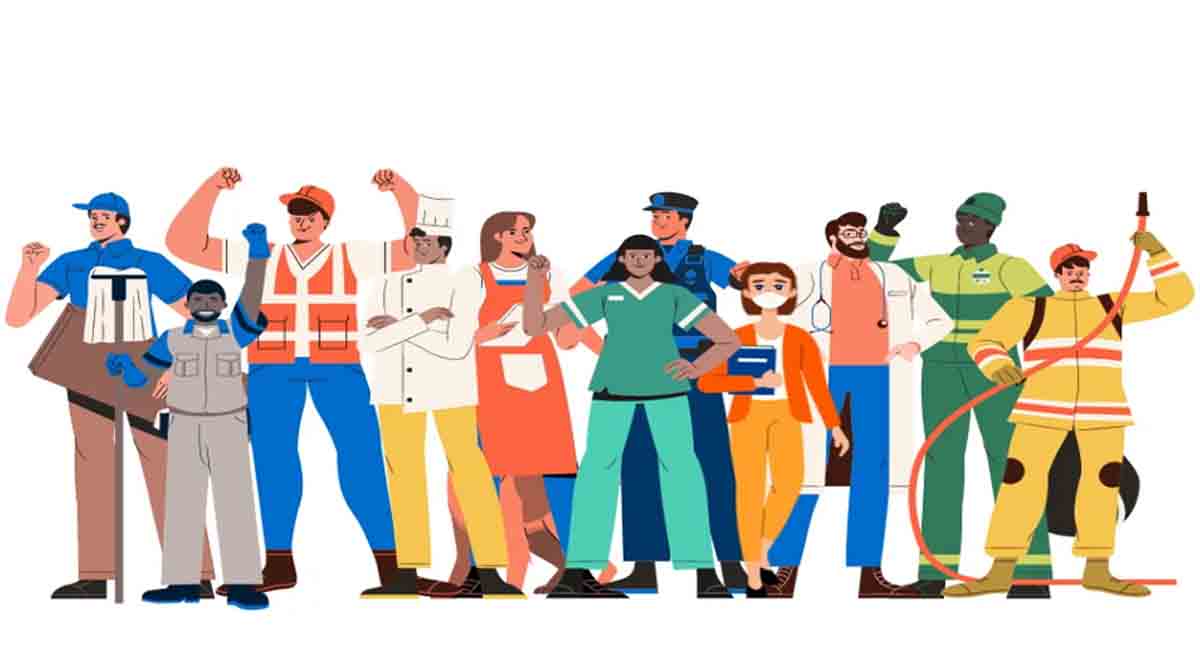On May 1, 2023, will celebrate Labour Day in India, a day dedicated to acknowledging the hard work and contributions of the working class and laborers. This day is a tribute to those who have dedicated their efforts to improving the economy and meeting the needs of the people and the country’s system as a whole.
History and Importance of Labour Day in India 2023
Labour Day, also known as May Day, is a day dedicated to the celebration of the working class and their contributions to society. In India, the origins of Labour Day can be traced back to the late 19th century, when the first Labour Day parade was held in Chennai (then known as Madras) on May 1st, 1923. The parade was organized by the Labour Kisan Party of Hindustan, which was led by the revolutionary leader, Singaravelu Chettiar.
Over the years, Labour Day has become an important occasion in India, as it provides an opportunity to recognize and appreciate the hard work and dedication of workers in various fields. The day is celebrated with various events and activities, such as parades, rallies, and cultural programs, organized by trade unions, labor organizations, and government bodies across the country.
The importance of Labour Day in India lies in its recognition of the significant contributions made by workers towards the development of the nation. It serves as a reminder of the struggles and sacrifices made by workers in the past to secure better working conditions, fair wages, and social security benefits. It also highlights the ongoing struggles of workers for their rights and demands in the face of economic challenges, technological changes, and political uncertainties.
Labour Day is a time to reflect on the value of labor and the dignity of work and to renew our commitment to creating a more just and equitable society that upholds the rights and welfare of all workers. It is a day to honor the workers who have built our nation and to show our appreciation for their contributions to our collective progress and prosperity.
Labour Day Celebrations in India
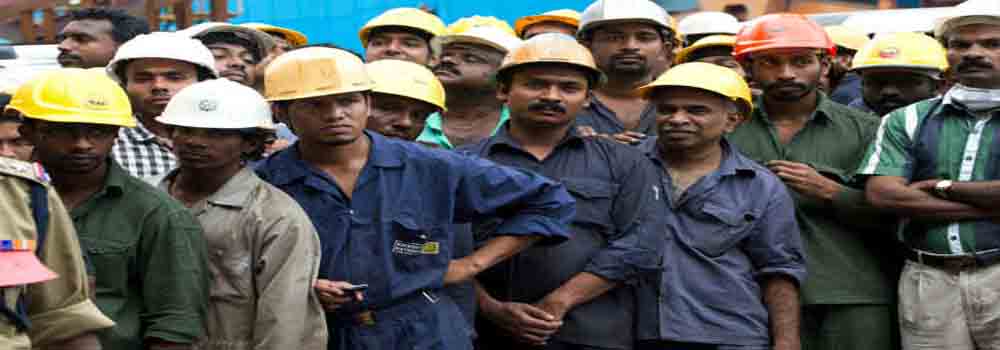
Labour Day is celebrated as a national holiday in India, and it is observed on May 1st every year. The day is marked by various public celebrations, including parades, rallies, and cultural events, organized by labor unions, organizations, and government bodies across the country.
Workers’ protests and demonstrations are also a common feature of Labour Day celebrations in India, as workers use the occasion to raise their voices for their rights and demands. These protests are often organized by trade unions and labor organizations, and they highlight issues such as job security, fair wages, social security benefits, and better working conditions.
Speeches and presentations by government and labor leaders are another important part of Labour Day celebrations in India. These speeches aim to inspire and motivate workers, and they often address issues such as workers’ rights, social justice, and the role of labor in the development of the nation.
In recent years, there has been a growing emphasis on the need to promote entrepreneurship and self-employment, as a means of generating more employment opportunities and promoting economic growth. This has led to the development of various programs and initiatives aimed at encouraging and supporting entrepreneurship, particularly among women and marginalized groups.
Overall, Labour Day celebrations in India serve as an important reminder of the contributions made by workers towards the growth and development of the nation, and they provide a platform for workers to raise their voices for their rights and demands.
Challenges Faced by Indian Workers
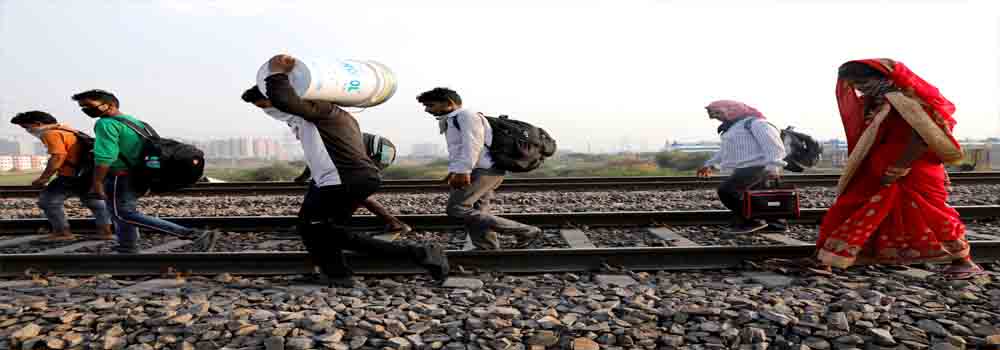
Indian workers face several challenges that impact their livelihood and well-being. Some of the major challenges include:
- Unemployment and Job Insecurity: The lack of employment opportunities is a major challenge faced by Indian workers. Even those who are employed often face job insecurity, as companies frequently lay off workers in response to changing economic conditions.
- Low Wages and Exploitation: Many workers in India are paid low wages, which often do not provide enough income to meet basic needs. This is especially true for workers in the informal sector, who are often exploited and denied basic labor rights.
- Lack of Social Security Benefits: Workers in India often lack access to social security benefits, such as health insurance, pension schemes, and maternity benefits. This leaves them vulnerable to financial shocks and makes it difficult for them to plan for their future.
- Poor Working Conditions: Many workers in India work in hazardous and unhealthy conditions, which can have a negative impact on their health and well-being. This is particularly true for those working in sectors such as construction, agriculture, and mining.
- Discrimination and Marginalization: Certain groups of workers, such as women, Dalits, and tribals, face discrimination and marginalization in the workplace. They often have limited access to employment opportunities and are paid lower wages than other workers.
These challenges highlight the need for policies and programs aimed at promoting decent work and ensuring that workers are able to earn a living wage, work in safe and healthy conditions, and access social security benefits. It is also important to address discrimination and marginalization in the workplace and to promote inclusive growth and development that benefits all workers, regardless of their background or identity.
Government Policies and Measures for Workers
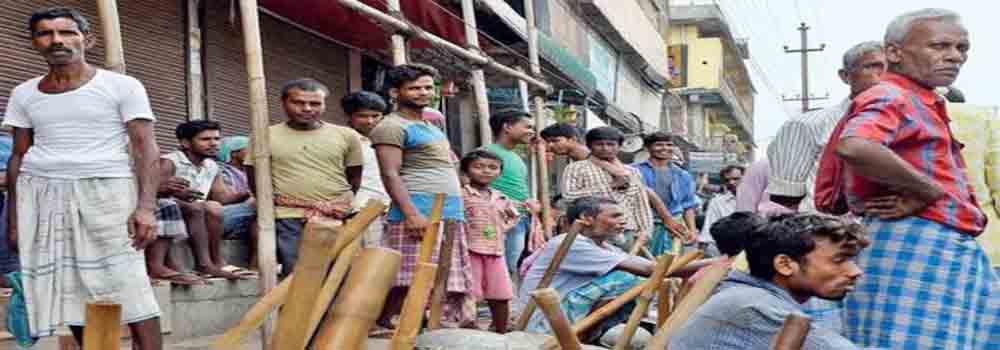
The Indian government has implemented several policies and measures to address the challenges faced by workers and improve their working conditions. Some of these policies include:
- Labour Laws and Regulations: The government has enacted several laws and regulations aimed at protecting workers’ rights and ensuring fair labor practices. These laws cover areas such as minimum wage, working hours, safety and health standards, and the right to organize and form unions.
- Minimum Wage and Wage Protection: The government has set minimum wage levels for different sectors and industries, and it has also implemented measures to ensure that workers receive their wages on time and are not exploited by their employers. The introduction of electronic payment systems and the use of direct benefit transfer (DBT) mechanisms have helped to reduce delays and ensure the timely payment of wages.
- Social Security and Health Benefits: The government has launched several social security schemes, such as the National Pension System (NPS), the Pradhan Mantri Suraksha Bima Yojana (PMSBY), and the Pradhan Mantri Jeevan Jyoti Bima Yojana (PMJJBY), aimed at providing financial security to workers and their families. The government has also introduced health insurance schemes, such as the Ayushman Bharat scheme, to provide access to affordable healthcare to workers and their families.
- Skill Development and Employment Programs: The government has launched several skill development and employment programs, such as the Skill India Mission and the Mahatma Gandhi National Rural Employment Guarantee Act (MGNREGA), aimed at providing training and employment opportunities to workers, especially in rural areas.
Overall, these policies and measures are aimed at promoting decent work and ensuring that workers are able to earn a living wage, work in safe and healthy conditions, and access social security benefits. However, there is still a need for further reforms and improvements, particularly in the informal sector, where many workers continue to face exploitation and marginalization.
Workers’ Unions and Movements
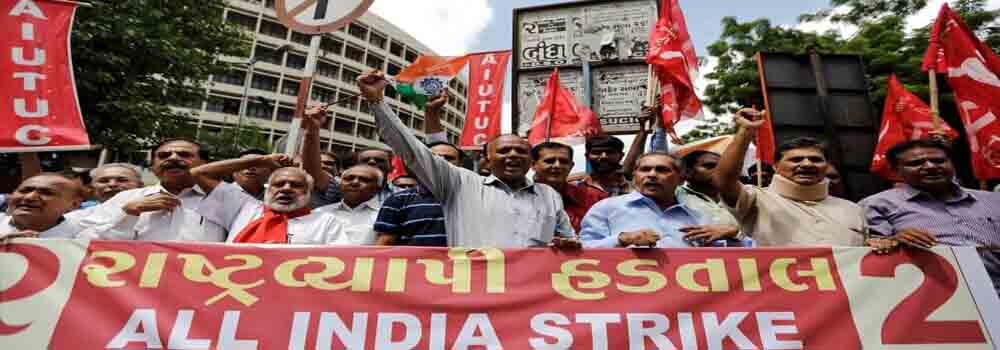
Workers’ unions and associations play an important role in promoting workers’ rights and improving their working conditions in India. These organizations bring workers together and provide them with a collective voice to demand better wages, working conditions, and social security benefits. Some of the key workers’ unions and associations in India include the Indian National Trade Union Congress (INTUC), the All India Trade Union Congress (AITUC), the Centre of Indian Trade Unions (CITU), and the Bharatiya Mazdoor Sangh (BMS).
The role of these unions in promoting workers’ rights is critical. They negotiate with employers and the government on behalf of workers to ensure that labor laws and regulations are enforced and that workers receive fair wages and benefits. Unions also play a key role in protecting workers from exploitation and discrimination, and in promoting gender and social justice in the workplace.
In recent years, there have been several workers’ movements and strikes in India, particularly in the informal sector, where workers are often denied basic labor rights and social security benefits. Some of the major movements and strikes include the 2018 farmers’ protests, the 2020 migrant workers’ crisis, and the ongoing protests by gig workers demanding better working conditions and benefits.
These movements and strikes have brought the issues faced by workers to the forefront of public debate and have led to increased pressure on the government and employers to take action to improve workers’ conditions. However, there have also been instances of violence and repression against workers and their unions, highlighting the need for continued advocacy and support for workers’ rights in India.
Global Labour Day Celebrations

International Workers’ Day, also known as May Day, is celebrated globally on May 1st every year to commemorate the contributions and struggles of workers around the world. The significance of this day lies in its history, as it originated as a day to demand an eight-hour workday and better working conditions for workers in the late 19th century.
Labour Day celebrations in India and other countries vary, but the focus is on recognizing the contributions of workers and advocating for their rights. In many countries, May Day is a national holiday, and workers’ unions and associations organize rallies, marches, and other events to demand better wages, working conditions, and social security benefits.
In India, Labour Day is a national holiday, and workers’ unions organize events and demonstrations to raise awareness about workers’ issues and demands. However, the celebrations are often overshadowed by political and social tensions, and workers in the informal sector continue to face challenges in accessing their rights and benefits.
In comparison, some countries have stronger labor laws and regulations, and workers have greater access to social security benefits and protections. For example, in countries such as Sweden and Denmark, workers have access to universal healthcare, paid parental leave, and other social benefits that provide them with greater security and stability.
Despite these differences, May Day celebrations also serve as a reminder of the importance of solidarity and support for workers’ rights across borders. In an increasingly globalized world, the struggles and demands of workers in one country can have an impact on workers in other countries, and workers’ unions and associations have a key role to play in advocating for workers’ rights and promoting social and economic justice for all.
Future of Workers in India
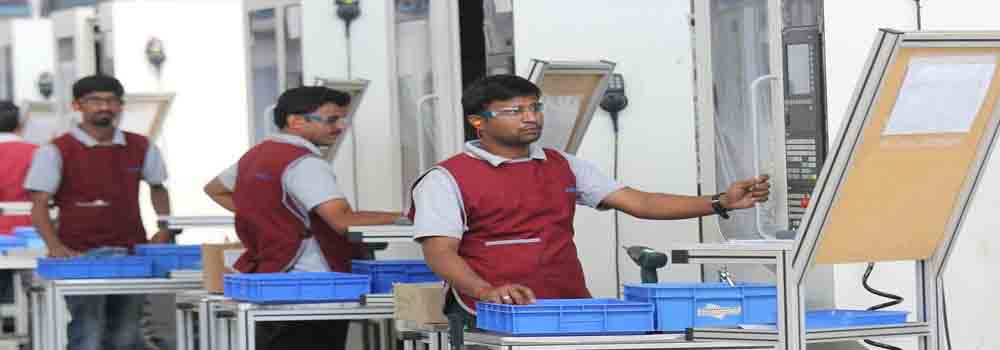
The future of workers in India is a topic of great concern, as they continue to face significant challenges and opportunities in the coming years. Technological advancements and the changing nature of work are likely to have a major impact on the Indian workforce, and there is a need for new policies and reforms to ensure that workers are able to adapt to these changes and thrive in the future.
One of the major challenges faced by Indian workers is the increasing use of automation and artificial intelligence in industries such as manufacturing and service sectors. This is likely to result in job losses, particularly in the unskilled and semi-skilled sectors, and could lead to increased unemployment and job insecurity.
However, there are also opportunities for Indian workers in the form of new jobs and industries that are emerging as a result of technological advancements. For example, there is a growing demand for skilled workers in fields such as artificial intelligence, robotics, and data analytics.
To address these challenges and opportunities, there is a need for new policies and reforms that focus on skilling and reskilling workers, as well as providing them with social security benefits and protections. The Indian government has taken some steps in this direction, such as the introduction of the National Skill Development Mission and the Pradhan Mantri Rojgar Protsahan Yojana, which provide financial incentives for employers to hire and train workers.
However, there is still a need for more comprehensive and effective policies that address the needs of all workers, including those in the informal sector. This could include reforms to labor laws and regulations, greater investment in education and training, and the provision of universal social security benefits for all workers.
The future of workers in India is likely to be shaped by the interplay of technological advancements, changing nature of work, and labor policies and reforms. The key to ensuring a bright future for Indian workers is to create an environment that promotes inclusive growth, social justice, and economic opportunities for all.
Read this 👉🏻 Ambedkar Jayanti – Celebrating the Life and Legacy of Dr. B.R. Ambedkar
Frequently Asked Questions
Why is Labor Day celebrated in India?
Labor Day is celebrated in India to honor and recognize the contribution of workers to the development and progress of the country. It is an occasion to acknowledge their hard work, dedication, and achievements and to raise awareness about the issues and challenges faced by the working class.
Why is May 1st Labor Day?
May 1st is celebrated as Labor Day in many countries around the world, including India. This date was chosen to commemorate the Haymarket affair, a labor protest that took place in Chicago, USA, in 1886. On May 1st of that year, thousands of workers went on a general strike to demand better working conditions and an eight-hour workday. The protests turned violent, and several people were killed. In the aftermath, May 1st was declared as International Workers’ Day to honor the workers who fought for their rights.
Why do we celebrate Labor Day?
We celebrate Labor Day to recognize and honor the contributions of workers to society. It is a day to acknowledge their hard work, dedication, and achievements and to raise awareness about the issues and challenges faced by the working class. It is also an occasion to advocate for workers’ rights and welfare and to push for policies and reforms that promote their interests.
Who started Labour Day in India?
The first Labour Day celebration in India was organized by the Labour Kisan Party of Hindustan on May 1, 1923, in Chennai. The event was attended by thousands of workers and featured speeches by labor leaders and activists. Since then, Labour Day has been celebrated annually in India as a national holiday to recognize the contributions of workers to the country’s development.
Where was Labour Day first celebrated in India?
Labour Day was first celebrated in India on May 1, 1923, in Chennai. The event was organized by the Labour Kisan Party of Hindustan and was attended by thousands of workers and labor leaders from across the country. Since then, Labour Day has been celebrated annually in India as a national holiday to recognize the contributions of workers to the country’s development.

